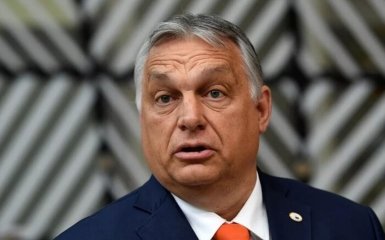Hungary has blocked the approval of the 13th package of EU sanctions against Russia. This time, not because of disagreement with measures directed against Russia, but because of China.
What is known about the blocking of the 13th package of sanctions against Russia
The EU is aiming to complete its 13th package of sanctions against Russia before the second anniversary of the full-scale invasion of Ukraine in nine days. This will complement a package of financial support for Kyiv for 50 billion euros and a proposal to reserve profits from Russia's frozen assets.
Hungary was the lone opponent at yesterday's meeting of EU ambassadors who would have otherwise signed off on a package of sanctions aimed at nearly 200 individuals and entities from Russia, China and other countries believed to be aiding Moscow's military operations.
The Hungarians did not agree because of the Chinese companies, one of the officials said.
Hungary and its Prime Minister Viktor Orbán have repeatedly slowed down or weakened EU measures aimed at punishing Russia or helping Ukraine.
Another official with diplomatic knowledge of the discussions described them as "a very fruitful exchange of views", delicately noting that Hungary's block was due to the Budapest ambassador "asking for a bit more time to analyze the content of the proposals".
Discussions will continue, officials said, and will most likely be taken up by member ministers at a meeting next week. Proponents of the sanctions package hope to reach a deal by next Wednesday, in time for the February 24 deadline.
What is known about the 13th package of EU sanctions against Russia
In January, the European Union began discussing a new package of sanctions, which it intends to approve by February 24, 2024.
At the beginning of February, the media reported that more than 200 companies and individuals will be included in the new package. According to Reuters, the package of sanctions will not contain new restrictions on the import of Russian goods.
Later, the media reported that the EU proposes to introduce sanctions against about 55 companies and more than 60 individuals as part of a new package of measures, timed to the second anniversary of Russia's invasion of Ukraine.
Let us add that on February 14 it became known that the ambassadors of the European Union could not agree on the 13th package of sanctions against the Russian Federation.




